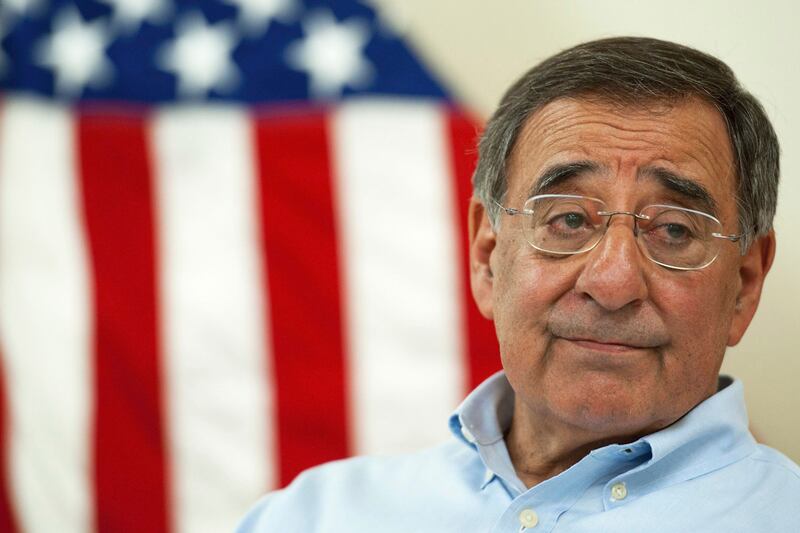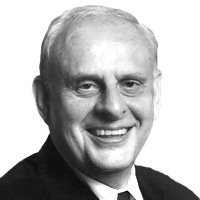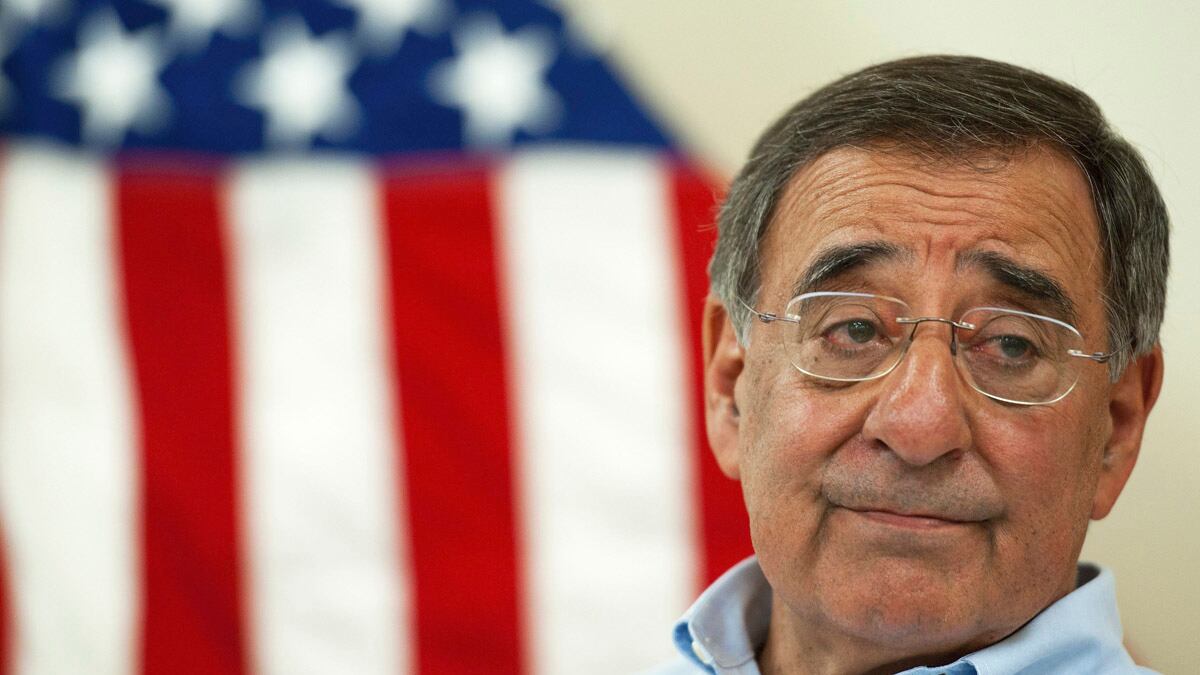Something’s amiss with Leon Panetta. He is a very smart and very careful guy who is making one startling verbal slip after another, everything from chalking up the Iraq War, inexplicably and incorrectly, to al Qaeda’s presence in that country, to saying, again mistakenly, that there would be 70,000 U.S. troops in Afghanistan by the end of 2014. He just isn’t the guy I met in 1966, when we both worked for moderate Republican senators. This isn’t the guy who’s watched and balanced his words for more than four decades in politics. Maybe his slips result from this really being the first time in his life that the world’s spotlight is directly on him, with reporters and wave makers hanging on his every word. Oftentimes, that propels even the most cautious to spout off. Or possibly it’s the pressure from the hard decisions he now faces as Defense secretary, namely America’s safe passage out of three wars, to say nothing of the awesome pressures he confronts in cutting military spending.
In 1966, Leon toiled for Senator Thomas Kuchel of California, the No. 2 Republican in the upper chamber. I served Senator Jacob Javits from New York. Leon was the son of Italian immigrants; I, the son of Hungarian immigrants. He had been elected president of his high school in Monterey, while I lost the election at New Rochelle High (though my slogan “Get more with Les” should have been irresistible).
Leon was a natural politician—and yet something much different and surprising. He always had the political impulse to seek the middle ground. That was most comfortable for him intellectually and the safest course with his various constituencies. In his congressional career, which began in 1977, he took very strong positions on environmental issues like protecting the oceans, but otherwise swam under the ideological radar. At the same time, and quite surprisingly, he was made of real executive steel. He ran the House Budget Committee with an iron hand, and later demonstrated the same spine as director of OMB and chief of staff for President Clinton. It seemed that when he was one of many, as in Congress or in various prestigious groups, he played for consensus. But when he was given top executive responsibility, he did whatever was necessary. Regardless of what role he found himself in, however, he very rarely made any verbal slips that either he or his staff needed to sweep up.

As long as I’ve known him, he’s never been given to rhetorical extravagance. He is highly intelligent and, unlike many so blessed, comes right to the point: It’s this way or that, and here’s why. He says nothing in 10 sentences that he can say in one or two. And, at least in the past, he usually didn’t say anything at all unless he felt he truly had to. That was precisely his style, which I observed in the James Baker/Lee Hamilton Study Group [PDF] on Iraq in 2006, and in a private group I chaired in 2008 that was convened to offer the next president, of whatever party, a strategy to govern. This man was most certainly not the one portrayed by The New York Times on Wednesday as “ambl[ing] around his Camp Victory guesthouse one night looking for reporters to talk to.” This is not the man who quietly left his post enforcing civil rights in the Nixon administration because he felt the White House wasn’t behind him. His departure was as silent as was his going to work for Republican Mayor John Lindsay in New York City. Just as seamlessly, he returned to his Monterey roots, became a Democrat, and was elected for nine terms in the House.
The media are having fun with his slips and the retractions from the various spokesmen in the Pentagon, and before that in his last days at the CIA after Osama bin Laden’s death. Even more, the media are relishing their speculations about how Panetta will handle the policy hurricanes swirling around his huge Pentagon office. The speculations all go in the same direction. They think the various musings that have been falling from Panetta’s lips as he has traveled around Afghanistan and Iraq all point to his being prepared to make very big decisions and very big recommendations to President Obama. They think he will push the withdrawal process from Iraq, Afghanistan, and Libya. They think he will make big cuts in the Pentagon budget, both to meet domestic economic needs and to shift military strategy from fighting major land wars in the Middle East to smaller counterterrorist operations. They see Panetta shifting the military toward drone and commando attacks and away from endless land wars.
My guess is different. Leon Panetta is at once an affable, decisive, and bold man. Being secretary of Defense will in all probability be the last major job he holds, which suggests that the bold streak will surface and that he will make big decisions. But he did not make big, bold decisions at the CIA (except for the bin Laden operation), and he certainly didn’t challenge the agency’s bureaucracy when he probably thought that being its director would be his last major post. And there is something about him that I’ve always sensed—he is not afraid of doing tough things and having open confrontations, but he strongly, very strongly, prefers to avoid them. So I think he will settle into the role of middleman between military demands and the wishes of the White House. He will perform this role very well, especially if he curbs his gaffes that have already begun to irritate the White House. It’s not by accident or without good reason that the Senate approved his nomination to serve as Defense secretary by a vote of 100 to 0.






